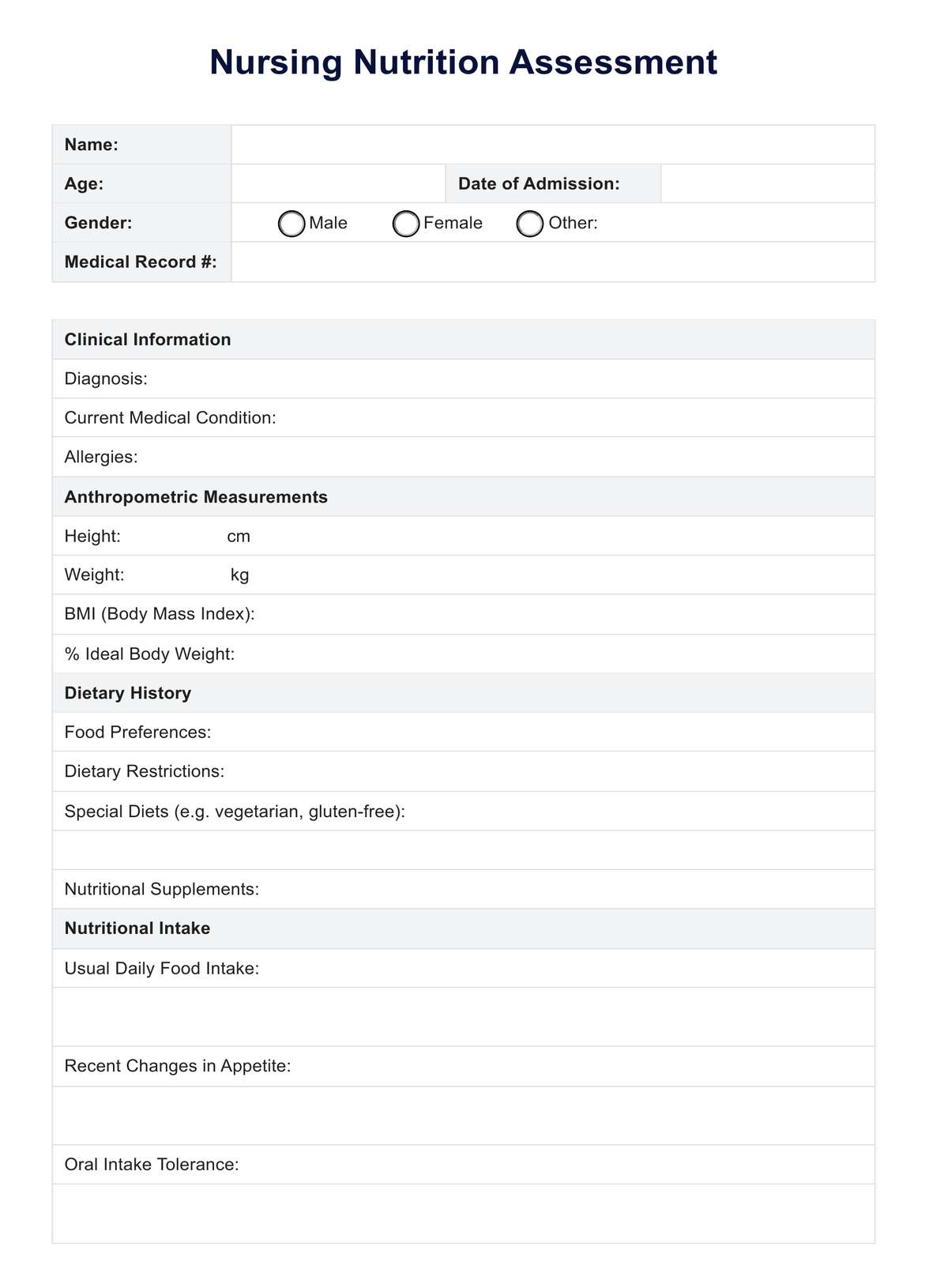Nutritional assessment involves evaluating dietary habits, body weight, biochemical data, clinical assessment, and anthropometric measurements. These components provide a comprehensive view of an individual's nutritional status.

Nursing Nutrition Assessment
Learn about nursing nutrition assessments, including examples and Carepatron's free PDF download to help you understand the process and improve patient care.
Nursing Nutrition Assessment Template
Commonly asked questions
Nurses assess a patient's nutritional status by examining factors such as dietary intake, weight changes, medical history, and physical signs of malnutrition. This evaluation helps identify risks and tailor interventions to optimize nutritional health.
A nurse's role in nutrition involves conducting assessments, collaborating with dietitians, implementing dietary plans, and educating patients on proper nutrition. Nurses play a vital role in promoting and maintaining optimal nutritional health through personalized interventions.
EHR and practice management software
Get started for free
*No credit card required
Free
$0/usd
Unlimited clients
Telehealth
1GB of storage
Client portal text
Automated billing and online payments











